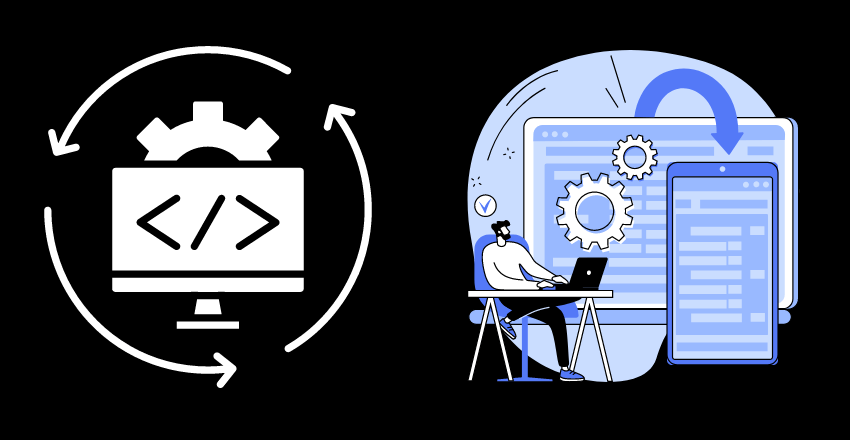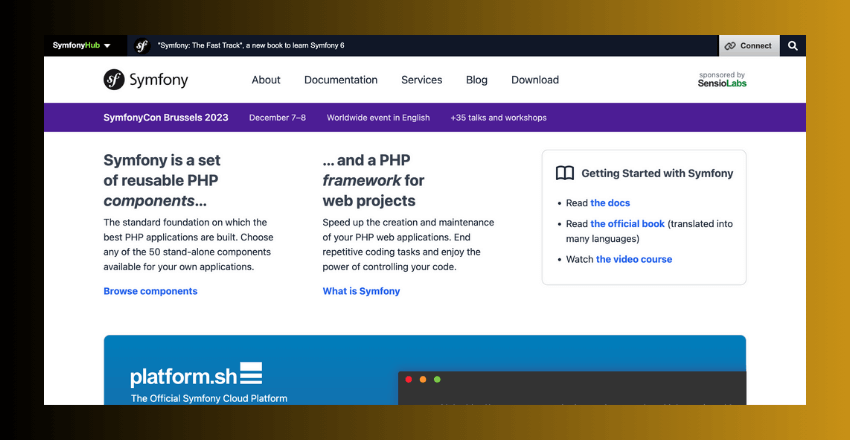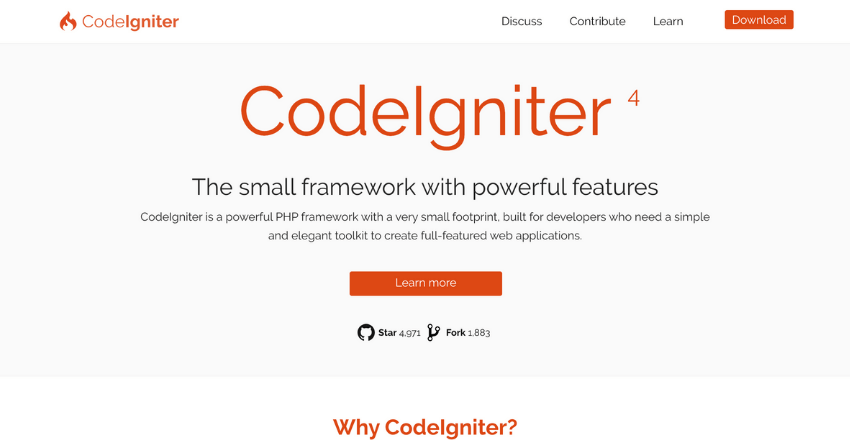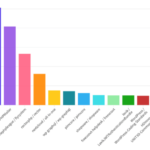 PHP is a widely-used programming language and an open-source platform that has been around for more than two decades. In web development, PHP has proven to be a reliable and efficient tool that many developers trust to create high-quality web applications. But what makes PHP so advantageous? In this article, we will discuss the benefits and advantages of PHP programming.
PHP is a widely-used programming language and an open-source platform that has been around for more than two decades. In web development, PHP has proven to be a reliable and efficient tool that many developers trust to create high-quality web applications. But what makes PHP so advantageous? In this article, we will discuss the benefits and advantages of PHP programming.
First and foremost, PHP offers flexibility in web development. Developers can customize and scale their projects with ease thanks to PHP’s flexible syntax and modular approach. Additionally, PHP is a cost-effective choice for development. Being an open-source language, it eliminates licensing fees and is compatible with various operating systems and databases.
Speed is another benefit of PHP programming. With features like Laravel or CodeIgniter that optimize performance, PHP allows for speedy development and execution of web applications. PHP also excels in database integration, with robust support for databases such as MySQL or PostgreSQL, simplifying tasks like querying, insertion, and manipulation of data.
Furthermore, PHP has a vast and active community of developers that offer support and resources. Access to libraries, frameworks, and forums makes troubleshooting and expanding functionality more accessible. Additionally, PHP provides several security features, including built-in functions for secure data handling and protection against SQL injection and cross-site scripting (XSS) attacks.
PHP also ensures scalability and ease of maintenance for web applications. Frameworks that support modular development, like Laravel and Symfony, make it easier to add new features or expand functionality. PHP is highly cross-platform compatible, allowing developers to write code that can run on different operating systems.
Finally, PHP receives regular updates and improvements to ensure that the language remains secure and relevant. The PHP development community is dedicated to enhancing the language’s features and performance.
Flexibility in Web Development
PHP is a language that offers developers exceptional flexibility in web development. Its syntax is easy to read and write, and its modular approach allows for customization and scalability in projects. This flexibility is one of the key advantages of PHP.
Developers can easily modify and extend PHP applications, making it a great choice for developing complex projects. Its modular structure enables developers to isolate certain features or functionalities, making it easy to customize and add new elements.
One of the advantages of PHP flexibility is that it accommodates different coding styles and methodologies, making it easy for developers to work with the language. Additionally, it offers a wide range of frameworks and libraries, which further enhance the flexibility of the language.
Modular Approach
PHP’s modular approach in development allows developers to break down projects into small manageable units, easy to maintain and update. With this modular approach, developers can create individual components that can work independently of each other, and then combine them to create a fully functional web application.
This modular approach enables developers to work on a specific feature or functionality without affecting other parts of the application, making it easier to debug and maintain. This approach also improves code reusability, reducing the amount of time required to develop new projects.
Overall, PHP’s flexibility in web development makes it an ideal choice for developers who require a language that is easy to use, customize, and maintain.
Cost-Effectiveness in Development

PHP is a cost-effective solution for web development, making it a popular choice for businesses and developers. One reason for this is that PHP is open-source, meaning it’s free to use and distribute. This can significantly reduce development costs, providing opportunities for smaller businesses and startups to compete with larger enterprises.
Another advantage of PHP is its compatibility with various operating systems and databases. This means that developers can use PHP to build applications that run on different platforms without incurring additional expenses. PHP is also highly efficient, allowing for speedy development and deployment of web applications, further contributing to cost savings.
Speed in Web Applications
One of the key advantages of PHP programming is its speed in developing and executing web applications. PHP is known for its fast processing speed and low overhead, making it an ideal language for building high-performance web applications.
PHP frameworks like Laravel and CodeIgniter optimize performance by providing features like caching, preloading, and lazy loading. These features help reduce load times and improve the overall user experience of web applications.
Moreover, PHP’s modular approach allows developers to streamline their code and optimize it for speed. This means that developers can build applications with minimal lag time, resulting in faster load times and improved user satisfaction.
The speed of PHP programming also enables developers to build scalable applications that can handle large amounts of traffic and data. As a result, businesses can grow their online presence without having to worry about site performance or sluggishness.
Database Integration
One of the main advantages of using PHP for web development is its robust support for database integration. PHP provides seamless integration with popular databases like MySQL and PostgreSQL, allowing developers to quickly and efficiently interact with data.
Reasons to use PHP for database integration are many. First, it simplifies tasks like querying, insertion, and manipulation of data. This saves time and effort for developers, allowing them to focus on other aspects of their projects. Additionally, PHP is widely used in the industry, meaning that developers are likely to find ample resources and support when working with PHP and databases.
Another benefit of PHP’s database integration is its flexibility. PHP can be used with different databases without undergoing significant modifications, making it easy to switch between database systems as project needs change.
Code examples demonstrating PHP’s database integration are readily available online, showcasing how PHP can help developers interact with databases in a secure and efficient manner.
Wide Community Support

One of the major advantages of PHP programming is the vast and passionate community of developers that support it. The community actively contributes to the development of the language and offers a wealth of resources to aid in development.
With a huge range of forums, blogs, and online communities at your disposal, it’s easy to troubleshoot issues and find the right resources for your project. Additionally, the community provides access to a wide range of libraries and pre-built frameworks, dramatically simplifying the coding process.
The PHP community is constantly evolving, with developers pushing the boundaries of what can be done with the language. Benefits of this community support include keeping PHP at the forefront of web development and providing developers with endless opportunities to learn, grow, and innovate their projects.
Security Features
Security is a top priority for any web developer, and PHP offers a range of advantages when it comes to secure coding.
One of the benefits of PHP programming security is its built-in functions for handling user input and data. These functions reduce the risk of security vulnerabilities such as SQL injection, cross-site scripting (XSS) attacks, and other malicious activities that can compromise data.
In addition to built-in functions, PHP has a strong emphasis on best practices for secure coding. Developers can follow recommended guidelines for coding securely, including data validation, sanitization, and encryption.
Another advantage of PHP’s security features is the availability of secure frameworks. Frameworks such as Laravel and CodeIgniter offer features such as data validation and error handling, further enhancing the security of web applications.
With PHP’s built-in functions, coding best practices, and secure frameworks, developers can build applications that are more secure and resistant to malicious activities.
Scalability and Maintenance
One of the significant advantages of PHP programming is its scalability. Its modular approach to web development allows developers to add new features and expand functionality with ease. PHP frameworks like Laravel, CodeIgniter, and Symfony provide support for such modular development, making it easier to maintain and scale web applications over time.
Additionally, PHP’s flexibility in customization enables developers to build projects that can be easily scaled up or down to meet changing business needs. This scalability ensures that companies can avoid costly rebuilds or redesigns when they need to grow and adapt their applications.
The benefits of PHP programming scalability also extend to maintenance. Because of its modular approach, PHP web applications are easier to maintain and update. Changes can be made to individual modules or components without affecting the broader application, making it easier to keep the entire system up-to-date and secure. This ease of maintenance translates to cost savings in the long run, as developers spend less time and resources on upkeep.
Cross-Platform Compatibility
One of the significant advantages of using PHP programming is its cross-platform compatibility. PHP can run on various operating systems like Windows, Linux, macOS, and various web servers. This feature makes PHP a preferable choice for building web applications as developers can write code that can run on different platforms.
When a web application needs to be ported or moved to another platform, PHP makes it easier as the code can be quickly adapted to the new environment. This cross-platform compatibility not only saves efforts and time but also enables developers to reach a wider audience.
PHP’s cross-platform compatibility also ensures the web application’s consistency across different platforms, maintaining the same functionality and performance. This feature makes PHP ideal for building web applications that have to operate on various devices and platforms.
Overall, the cross-platform compatibility of PHP is one of the significant advantages of PHP programming. It offers developers the flexibility to write code that can run on different platforms, saves time and effort, and ensures consistent performance and functionality across different devices and platforms.
Continuous Updates and Improvements

One of the key advantages of PHP programming is the language’s commitment to continuous updates and improvements. The PHP development community is constantly working to enhance the language’s features and performance, ensuring it remains relevant and secure.
The benefits of these updates are manifold. They ensure that PHP remains competitive with other programming languages, and improve the language’s ability to handle modern web development challenges. Recent updates have added support for new web technologies, such as HTTP/2 and improved security features to protect against the latest threats.
Regular updates also mean that developers can take advantage of new programming paradigms and approaches. For example, recent versions of PHP have added support for functional programming techniques, giving developers more tools for solving complex problems.
Another strength of PHP’s update process is the community involvement. Developers from around the world contribute to the development of the language, making suggestions for new features and helping to locate and fix bugs. This collaboration ensures that PHP remains a vibrant and thriving language that is constantly evolving to meet the needs of its users.
The continuous updates and improvements to PHP are a major benefit of programming in the language. Developers can be confident that the language will remain relevant and secure, and that they will always have access to the latest tools and technologies.
Popular PHP Frameworks
When it comes to PHP development, frameworks can help simplify and speed up the process of building web applications. Here are some of the most popular PHP frameworks:
Laravel

Laravel is a widely-used PHP framework that prioritizes ease of use and elegant syntax. It offers a range of features, including an intuitive ORM, routing and middleware, and a built-in template engine. Laravel is also known for its extensive documentation, vibrant community, and MVC architecture, making it an excellent choice for developers working on complex web applications.
Symfony

Symfony is a full-stack PHP framework that provides a set of reusable components and tools for web development. It follows the Model-View-Controller (MVC) pattern and supports multiple databases and templating engines. Symfony is also widely regarded for its security features and flexibility, making it easy to customize and scale projects of any size.
CodeIgniter

CodeIgniter is a lightweight and powerful PHP framework that prioritizes speed and performance. It has a small footprint and minimal configuration, making it easy to install and use. CodeIgniter is also known for its clear documentation, robust security features, and MVC architecture, which allows developers to create efficient and modular web applications.
Choosing the right PHP framework depends on the specific needs and requirements of your project. However, Laravel, Symfony, and CodeIgniter are all excellent options for building web applications quickly and efficiently. Their advantages and benefits make them a top choice among developers around the world, proving that PHP frameworks are essential tools for any PHP programmer.
Final Thoughts
PHP stands out among other popular web development languages, offering countless benefits and features that make it an attractive option for developers.
Whether you’re building a simple website or a complex enterprise application, PHP provides the necessary tools and support for seamless and efficient web development.
External Resources
FAQ
1. Why is PHP a good choice for web development?
Answer: PHP has a straightforward syntax and is easy to set up, making it ideal to start building web applications quickly.
Code Sample – Simple ‘Hello World’ in PHP:
<?php
echo "Hello, World!";
?>This basic example demonstrates PHP’s simplicity, ideal for web development.
2. How does PHP’s compatibility with databases make it a good choice?
Answer: PHP offers seamless integration with many popular databases like MySQL, PostgreSQL, and SQLite, making it great for developing database-driven applications.
Code Sample – Database Connection:
<?php
$conn = new mysqli("localhost", "username", "password", "database_name");
if ($conn->connect_error) {
die("Connection failed: " . $conn->connect_error);
}
echo "Connected successfully";
?>This snippet shows how PHP can easily connect to a MySQL database.
3. Why is PHP good for building dynamic web pages?
Answer: PHP can dynamically generate HTML content based on different conditions or user inputs, making it perfect for creating interactive and dynamic web pages.
Code Sample – Dynamic HTML Generation:
<?php
$currentTime = date("H");
if ($currentTime < "20") {
echo "Have a good day!";
} else {
echo "Have a good night!";
}
?>PHP is generating different responses based on the time of the day.
4. How does PHP support for various frameworks benefit development?
Answer: PHP has a wide range of frameworks, like Laravel and Symfony, which offer robust tools and features to streamline the development process and enhance application functionality.
Code Sample – Basic Route in Laravel:
// Using Laravel's routing
Route::get('/', function () {
return 'Welcome to my Laravel app!';
});
This example uses Laravel, a PHP framework, for defining a simple route.
5. Why is PHP considered versatile and flexible for different types of projects?
Answer: PHP is versatile enough to build small websites, large-scale enterprise applications, and everything in between. Its extensive library of built-in functions and community-contributed extensions make it highly adaptable.
Code Sample – File Handling:
<?php
$file = fopen("testfile.txt", "w");
fwrite($file, "Hello, this is a test file.");
fclose($file);
?>
PHP’s built-in functions for file handling demonstrate its versatility.
PHP’s ease of use, database integration, support for dynamic content, rich ecosystem of frameworks, and flexibility across different types of projects make it a popular choice for web developers worldwide.
Ashley is an esteemed technical author specializing in scientific computer science. With a distinguished background as a developer and team manager at Deloit and Cognizant Group, they have showcased exceptional leadership skills and technical expertise in delivering successful projects.
As a technical author, Ashley remains committed to staying at the forefront of emerging technologies and driving innovation in scientific computer science. Their expertise in PHP web development, coupled with their experience as a developer and team manager, positions them as a valuable resource for professionals seeking guidance and best practices. With each publication, Ashley strives to empower readers, inspire creativity, and propel the field of scientific computer science forward.



![How to use Cursor AI to write PHP Code[Example]](https://hirephpdeveloper.dev/wp-content/uploads/2025/03/How-to-use-Cursor-AI-to-write-PHP-Code-1-150x150.png)



